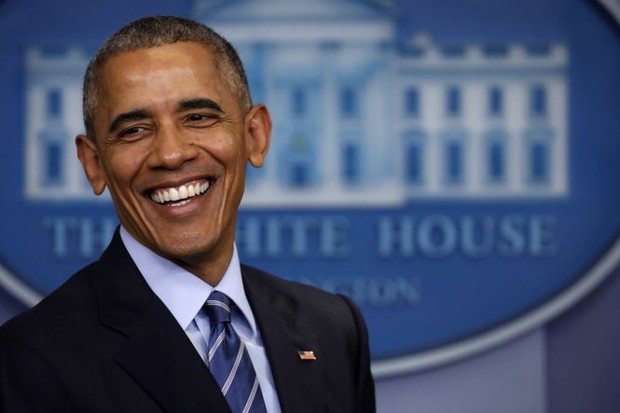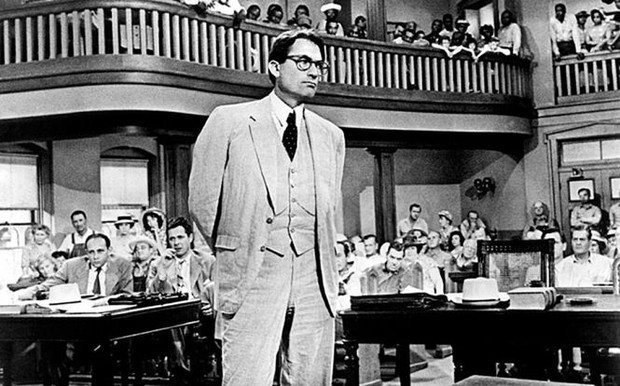
by NNPA ESSA | Nov 13, 2017 | Education, ESSA, Every Student Succeeds Act, Every Student Succeeds Act (ESSA), K12 Education, Louisiana
By Wilborn P. Nobles III, nola.com
A $13 million dollar federal grant has been awarded to two New Orleans universities and four nonprofits in an effort to recruit and train 900 diverse teachers for Louisiana by 2020.
The U.S. Education Department’s Supporting Effective Educator Development Program grant will fund the task set forth by Xavier University and Loyola University, according to school officials Monday morning (Nov. 13) at Xavier’s campus. The schools will be collaborating with Teach For America Greater New Orleans, teachNOLA, Relay Graduate School of Education, and New Schools for New Orleans to address teacher pipeline challenges in the city.
The federal funding comes as figures from Tulane University’s Education Research Alliance for New Orleans showed the rate of teachers leaving the profession or leaving the city was as high as 25 percent annually as of 2015. With this in mind, New Schools CEO Patrick Dobard said the funding serves as a “starting point” as organizations seek longterm sustainable strategies to fund and retain teachers in the city and the region.
Dobard said New Orleans needs to fill 800 teacher vacancies annually, and that doing so would contribute to the improved quality of its public schools. Drawing attention to the C-rating awarded to Orleans Parish schools by Louisiana’s Department of Education, Dobard stressed that “too many of our children are still not receiving the quality education that we’ve come to expect in New Orleans….”
Read the full story here…

by NNPA ESSA | Nov 8, 2017 | Education, ESSA, Every Student Succeeds Act, Every Student Succeeds Act (ESSA), K12 Education, Louisiana
It’s not a required course or an exam, but Louisiana’s estimated 40,000 public high school seniors won’t be allowed to graduate without completing it.
“It” is the FAFSA – the free application for federal student aid – and the graduating class of 2018 is the first to be affected by the policy approved by the Board of Elementary and Secondary Education in 2015.
The form is used to determine student eligibility for financial aid, such as Pell grants, work study programs and federal student loans.
BESE, the governing and policymaking board for K-12 public schools, tethered completion of the federal application as a requirement for getting a high school diploma because of the historically low number of Louisiana students using the form. The state department of education officials said when students didn’t fill out the form, it created unnecessary financial barriers to postsecondary schools or training.
“We wanted to ensure equitable access to all students,” state education department spokeswoman Sydni Dunn said. “Too few students take advantage of state and federal aid.”
Although the state’s number of submissions is improving, Louisiana’s rank near the bottom among states for submission of the FAFSA form was the impetus for the policy two years ago, Dunn said. The amount of money left on the table is “staggering,” she said.
“By not completing the FAFSA, Louisiana students forego millions of dollars each year in federal grants, state opportunities and other post-secondary funding,” Dunn said. “This year, for example, it is estimated the 25 percent of students who did not submit the FAFSA, to date, may be missing out on more than $150 million in aid…
Read the full article here.

by NNPA ESSA | Oct 18, 2017 | Education, ESSA, Every Student Succeeds Act, Every Student Succeeds Act (ESSA), K12 Education, Mississippi
A Mississippi school named after Confederate leader Jefferson Davis is changing its name to honor former President Barack Obama, The Clarion-Ledger reports.
The newspaper reports Davis Magnet International Baccalaureate World School is in Jackson, Miss, and is a predominantly black public elementary school. The president of the school’s Parent-Teacher Association told the Jackson Public Schools Board of Trustees on Tuesday night (Oct. 17) that “school stakeholders” voted to change the school’s name to Barack Obama Magnet IB. The report did not say who the stakeholders were.
“Jefferson Davis, although infamous in his own right, would probably not be too happy about a diverse school promoting the education of the very individuals he fought to keep enslaved being named after him,” the PTA president told the board, according to the report.
Read the The Clarion-Ledger’s full story.

by NNPA ESSA | Oct 15, 2017 | ESSA, Every Student Succeeds Act, Every Student Succeeds Act (ESSA), K12 Education
“To Kill a Mockingbird” is being removed from a junior-high reading list in a Mississippi school district.
The Sun Herald reports that Biloxi administrators pulled the novel from the 8th-grade curriculum this week. School board vice president Kenny Holloway says the district received complaints that some of the book’s language “makes people uncomfortable.”
Published in 1960, the Pulitzer Prize-winning novel by Harper Lee deals with racial inequality in a small Alabama town.
A message on the school’s website says “To Kill A Mockingbird” teaches students that compassion and empathy don’t depend upon race or education. Holloway says other books can teach the same lessons.
The book remains in Biloxi school libraries.
Read the full story here.

by NNPA ESSA | May 15, 2017 | ESSA, Illinois, K12 Education
The Illinois Senate held a subject matter hearing to discuss two education funding plans: SB 1 (Sen. Andy Manar) and SB 1124 and SB 1125 (Sen. Jason Barickman).
The sponsors presented their bills to the Senate Education committee; at their core, both measures are based on the evidence-based model. (Read this NPR story for a good explanation of the evidence-based model.) The model examines national best practices for student achievement and costs those out to determine its adequacy rate, leading to a transparent process that lets school districts and parents see where their dollars are being spent. The formula contains 27 different elements, including full-day kindergarten, capping K-3 classes at 15 students, adding specialist teachers, and improving classroom technology.
Despite some similarities, the proposals are very different. Sen. Barickman’s bills would eliminate the Chicago block grant, which is essential to funding Chicago Public Schools. It also contains mandate relief similar to that in SB 13 of the “grand bargain”. SB 1124 and SB 1125 would also allow third-party contracting of non-instructional employees without accountability, eliminate the requirement that schools provide drivers education, and remove the requirement for daily physical education. The IFT strongly opposes these measures.
By contrast, Manar’s SB 1 includes money for Chicago and does not include harmful mandate relief.
With session scheduled to end on May 31, its unknown whether the full Senate will take a vote on a school funding proposal this session.
Source: Illinois Federation of Teachers

by NNPA ESSA | Mar 25, 2017 | ESSA, Every Student Succeeds Act, Every Student Succeeds Act (ESSA), Illinois
The Illinois House met this week, while Senate was not in session. Lawmakers are working to meet important deadlines; to remain active in the legislative process this session, bills must be approved in their chamber of origin by April 28. Next week marks the deadline for bills to move from committee to the floor for consideration in the full House. The committee deadline has already passed in the Senate.
Here are a few highlights from this week:
Proposals address substitute teacher shortage
Illinois has a serious problem with attracting and retaining substitute teachers. House lawmakers have put forward various measures in search of a solution, including:
(Click on each bill to view its status.)
HB 3021(Martwick) requires the Illinois State Board of Education (ISBE) to implement a program to allow temporary staffing firms to contract with school districts to provide substitute teachers.
HB 751 and HB 2547 (Davidsmeyer) would affect the definition of “eligible employment” for the purpose of allowing a retired teacher to return to teaching in subject shortage areas without impairing his or her retirement status or retirement annuity by changing the ending date of the employment from no later than June 30, 2013 to no later than June 30, 2020.
HB 2898 (Crespo) removes the sunset date of June 30, 2021 to allow individuals with four years of experience as school support personnel to obtain a principal endorsement.
HB 3298 (Scherer) waives the Substitute Teaching License fee for individuals who prove they were previously employed as a full-time teacher. If a Substitute Teaching License application is from someone who doesn’t currently hold one, if granted a license, they can receive a full refund by proving they taught 10 full school days within a year of receiving their license. Status: Passed the House Elementary & Secondary Education: Licensing, Administration and Oversight Committee.
HB 3080 (Reis) increases the amount of time a retired educator may work as a teacher without impairing retirement status; allows 130 paid days or 700 paid hours in a school year. Effective immediately.
House Education committees update
The House Education Curriculum and Policy and Licensing committees discussed numerous proposals this week, including:
HB 3869 (Wallace) requires in-service training to develop cultural competency (rather than training on civil rights and in cultural diversity), including understanding and reducing implicit racial bias. This bill passed committee and is headed to the House floor. IFT supported this measure.
HB 3394 (Walsh) provides that the Department of Children and Family Services (DCFS) may recommend that a school district remove an employee who is the subject of an investigation from his or her employment position pending the outcome of an investigation; however, all employment decisions regarding school personnel shall be the sole responsibility of the school district or employer. This bill passed committee and now heads to the House.
HB 459 (Ives) provides that school districts may not be indebted in an amount greater than that indicated in current statute. If a district does exceed the debt limitation, it may not incur any new debt until the debt is lower than the debt limitation. This bill passed committee and is headed to the House floor. IFT opposed this legislation.
HB 266 (Flowers) allows parents to opt-out of standardized testing. The measure prevents the Illinois State Board of Education (ISBE) from assessing (testing) any student whose parent or guardian informed ISBE, in writing, that they do not wish the student be assessed. The bill requires ISBE to develop an opt-out form for parents to submit, and requires districts to distribute the forms. The bill did not pass out of committee, but the issue is likely to resurface. IFT supported this legislation.
IFT educates lawmakers about harms of mandate relief proposals
Due to the Governor’s budget impasse, a high volume of mandate relief bills have been introduced this session. With just one week remaining before the House committee deadline, IFT legislative staff continue to educate lawmakers about the harmful effects these changes would have on schools. To date, the House and Senate Education committees have not approved any of the following measures:
HB 440 (Ives) provides that physical education (PE) may (rather than shall) be provided to pupils. Because class sizes for PE are often larger than other classes, this bill may increase school district costs.
HB 663 (Morrison) provides that if any payments from the state to a school district are delayed for at least one payment cycle, the school board may discontinue, by a publicly adopted resolution, any instructional mandate in the Courses of Study Article of the school code during that time (with exceptions).
HB 670 (Morrison) provides that a school district may offer a driver education course by contracting with a commercial driver training school to provide both either or both the classroom instruction and driving practice components without requesting a modification or waiver of administrative rules.
HB 788 (Demmer) provides that all units of local government, school districts, and public colleges and universities may, by a majority vote of the governing body, exempt themselves from specified unfunded mandates if it is determined that it is not economically feasible to comply.
HB 793 (Demmer) provides that school districts need not comply with – and may discharge – any unfunded mandate or requirement placed on school districts by the school code or administrative rules. The IFT opposes this measure.
HB 2443 (Bennett) provides that a school district may offer a driver education course by contracting with a commercial driver training school to provide both the classroom instruction part and the practice driving part or either one without having to request a modification or waiver of administrative rules of the State Board of Education.
HB 2569 (Harris) provides that a school board may excuse pupils enrolled in grades 9 – 12 from engaging in physical education courses if those pupils request to be excused for any of certain listed reasons.
HB 3205 (Davidsmeyer) prohibits unfunded mandates, among other changes.
SB 13 (Cullerton) establishes a temporary property tax freeze and provides mandate relief for school districts, including greater flexibility in scheduling physical education, using commercial driving schools for driver education, and contracting with third parties for non-instructional services. SB 13 was part of the grand bargain, but did not receive a floor vote and has been referred back to the Senate Assignments committee.
SB 756 (Morrison) authorizes a school board to excuse students in grades 9-12 from engaging in physical education courses if those pupils request to be excused for any of certain listed reasons.
SB 1712 (Barickman) mirrors language in SB 13 that would allow for 3rd party contracting and physical and driver education changes without the referendum procedure for discharging mandates.
SB 1862 (Rooney) provides that the corporate authorities of a municipality may, by ordinance with a three-fifths vote, exempt the municipality from one unfunded mandate per year if it determines that compliance with the unfunded mandate creates an undue burden.
SB 2064 (Righter) provides that all units of local government, school districts, and public colleges and universities may, by a majority vote of the governing body, exempt themselves from specified unfunded mandates.
Read the full article here






